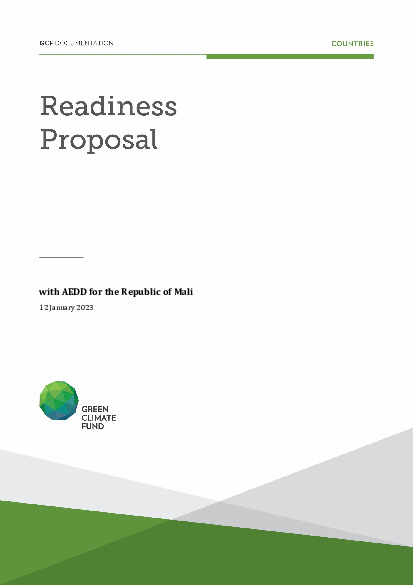Readiness Support for Mobilizing Mali’s Private Sector Access to Climate Finance

Readiness Support for Mobilizing Mali’s Private Sector Access to Climate Finance
Mali is one of the most vulnerable countries to climate change in the world due to its geographical location as a landlocked country and climatic (urban flooding, droughts, desertification, heat stress) characteristics, exacerbated by the socio- economic situation of a significant part of the population living below the poverty line. Coupled with COVID-19 pandemic which has strained Mali’s budget due to reallocation of government’s budget to the health crisis, and Mali’s political upheavals, reliance on public funds to combat climate change effects has been significantly hampered. This calls for increased participation of the private sector in climate resilient development pathways to effectively combat climate change, though the private sectors’ involvement in overall GDP contribution still remains low (below 10%).
To effectively engage Mali’s private sector in climate change initiatives, 2 challenges have been noted i.e., inadequate enabling environment that incentivizes the private sector in climate resilient development pathways, and inadequate capacities of the private sector to effectively develop projects that combat climate change. Several projects, including previous readiness grants, have strived to increase the Private Sectors’ involvement in climate change initiatives, but a concrete Private Sector Action Plan that incentivizes private sector players is yet to be undertaken.
The overarching objective of this readiness proposal aims at contributing to the joint efforts of the Government of Mali and other stakeholders, particularly the private sector, in lowering carbon emissions and resilience recovery through strengthened institutional capacity, and increased private sector engagement.